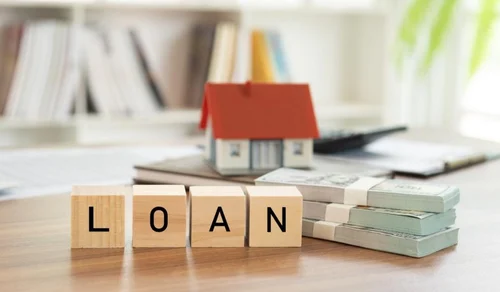Most mortgage lenders require a down payment between 3–20% of the home’s cost as part of the approval process for a mortgage loan. Personal loans shouldn’t be used as down payment funds because they could impact your debt-to-income ratio and make getting approved harder.
However, many mortgage lenders prohibit using personal loans for closing costs or down payments.
Buying a House in Cash
Finding money for a down payment on a house can be challenging, but personal loans may provide an effective solution to help pay closing costs when buying one. Just be sure to inform your mortgage lender as they may have specific requirements regarding personal loans for home purchases.
Cash buyers are preferred by sellers in competitive markets because they can close quickly, saving time and hassle when it comes time to secure financing. Plus, no hassle of applying for mortgage and waiting approval – two major considerations when selling real estate!
Cash buyers can gather the money needed for a home purchase from savings, investments or the sale of another property; and don’t need to worry about monthly mortgage payments. Still, cash buyers should still conduct an inspection prior to purchasing their new home so as to identify any issues and save themselves costly repairs down the line. It would also be prudent for them to work with a reputable and regulated conveyancing firm for future peace of mind.
Buying a House with a Down Payment
Homebuyers typically need to save for a down payment, which is the upfront payment they must make towards purchasing their house. This money shows commitment and lessens the likelihood that borrowers default on the mortgage agreement.
Many people struggle to save enough for down payments, leading some to resort to taking out personal loans in order to cover this requirement – something most mortgage lenders do not view favorably.
Borrowing money via personal loan for a down payment adds another debt load and may limit their choices of mortgage lenders. Instead, borrowers should save as much of their down payment money as possible or consider other methods such as state programs which offer secondary loans without interest charges or count against your debt-to-income ratio.
Buying a House with a Mortgage
Mortgage loans are usually the optimal method for financing the purchase of a house. Personal loans generally carry higher interest rates and shorter repayment terms, making them unsuitable as a source of funding home purchases. But in certain special situations, purchasing with personal loans could make sense.
Conventional mortgage lenders require down payments between 3% and 20%, making the amount difficult for many people to afford with just personal loans alone. Furthermore, lenders will assess your back-end debt-to-income ratio, so taking on new credit like personal loans increases that ratio making qualifying harder than before.
While a Markham personal loan offers flexibility for real estate purchases – acting as a quick cash offer іn a competitive market and often not requiring collateral – the potential downsides shouldn’t be ignored. Defaulting оn this loan can trigger debt collection and jeopardizes your ownership through foreclosure.
Buying a House with a Personal Loan
Personal loans should generally not be used to cover the upfront costs of purchasing a house, since mortgage lenders have regulations and requirements which disallow them. If someone chooses to take out such a loan for this purpose, they should always notify their lender so they may provide guidance on its impact for their mortgage approval process and debt-to-income ratio.
Wrapping Up
Personal loans should generally not be used to fund down payments on homes due to their shorter repayment terms and higher interest rates compared with mortgage loans, due to being unsecure. There may be exceptions; for instance if you plan on purchasing a smaller or mobile home which few mortgage lenders finance then personal loans might be an alternative solution.
You May Also Like:














